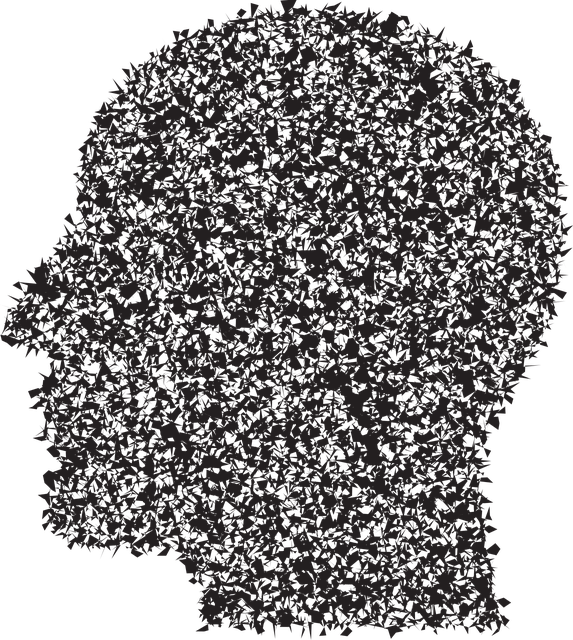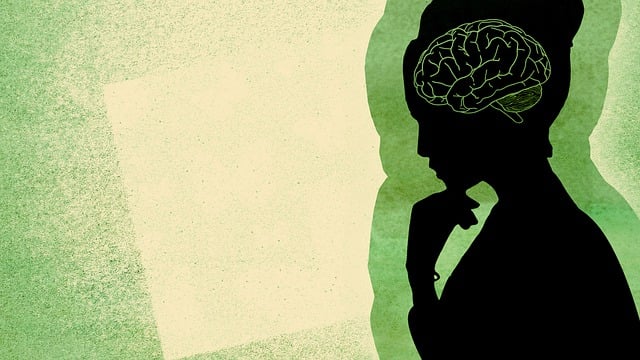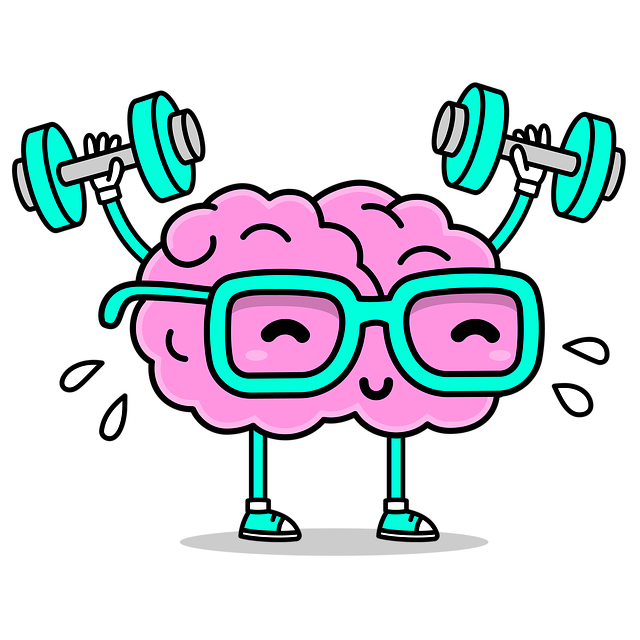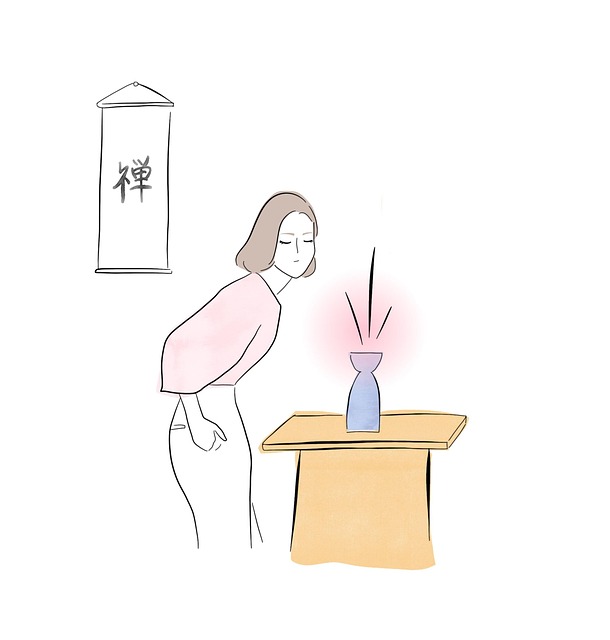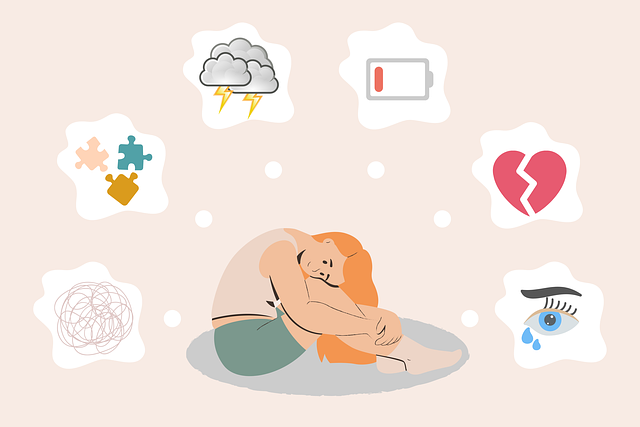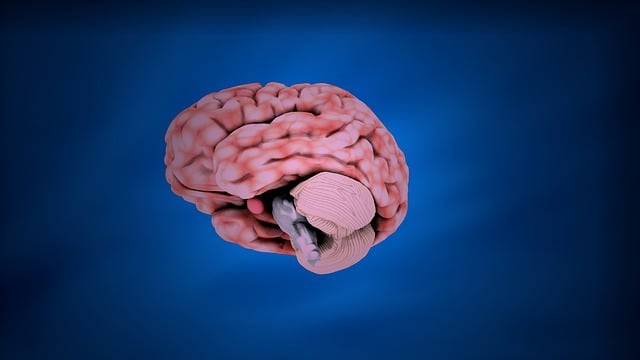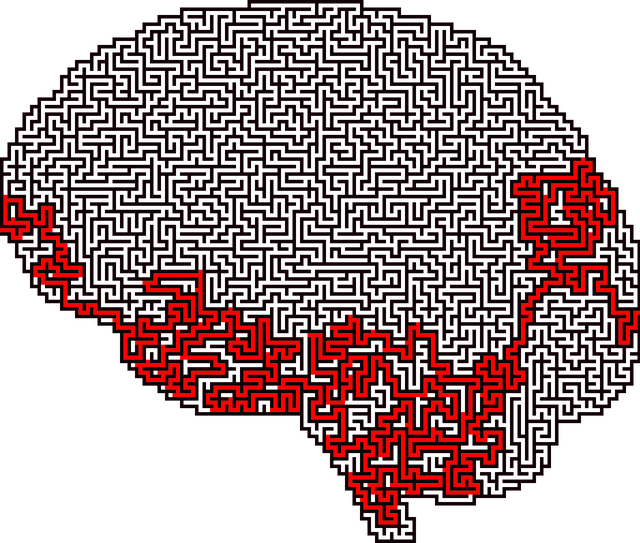Adult anxiety disorders, prevalent and impactful, require targeted strategies. Key therapies include cognitive-behavioral therapy (CBT), mindfulness practices, medication, and support groups, addressing causes like trauma, genetics, brain chemistry, and environmental stressors. By combining burnout prevention, community outreach, and conflict resolution techniques, we can improve mental wellness through Therapy for Adults Anxiety. This involves empowering individuals with coping mechanisms, promoting positive thinking, and advocating for accessible crisis intervention. Healthy habits like exercise, balanced living, hobbies, and social connections enhance resilience. Overcoming stigma encourages individuals to seek professional help, leading to effective management of anxiety symptoms and improved quality of life.
Mental wellness promotion is a vital aspect of modern life, especially considering the prevalence of adult anxiety disorders. This comprehensive guide explores various facets of anxiety management, from understanding symptoms and causes to effective therapy types. We delve into strategies for daily mental wellness and emphasize the importance of overcoming stigma to encourage individuals seeking professional help for their anxiety. By addressing these key areas, we aim to equip folks with the knowledge needed to prioritize their therapy for adults anxiety.
- Understanding Adult Anxiety: Symptoms and Causes
- The Role of Therapy in Managing Anxiety Disorders
- Different Types of Therapy for Adults with Anxiety
- Strategies for Daily Mental Wellness Promotion
- Overcoming Stigma: Seeking Professional Help for Anxiety
Understanding Adult Anxiety: Symptoms and Causes

Adult anxiety disorders are prevalent conditions that significantly impact an individual’s daily life and overall mental wellness. Recognizing and understanding the symptoms and causes is crucial for effective therapy and management. The most common forms include generalized anxiety disorder (GAD), panic attacks, social anxiety, and specific phobias. Symptoms manifest as excessive worry, restlessness, insomnia, fatigue, muscle tension, and irritability. These can lead to avoidance behaviors and negatively affect work, relationships, and overall quality of life.
Several factors contribute to the development of adult anxiety. Traumatic experiences, genetic predisposition, brain chemistry imbalances, and environmental stressors play a role. Burnout prevention strategies for healthcare providers, community outreach program implementations, and conflict resolution techniques can help mitigate these causes. Effective therapy options include cognitive-behavioral therapy (CBT), mindfulness practices, medication, and support groups, offering personalized approaches to address the unique needs of each individual.
The Role of Therapy in Managing Anxiety Disorders

Therapy plays a pivotal role in managing anxiety disorders, offering adults effective tools to cope with symptoms and improve their overall mental wellness. Through various therapeutic approaches, such as cognitive-behavioral therapy (CBT), individuals can challenge negative thought patterns, learn relaxation techniques, and develop healthier coping mechanisms. CBT has proven particularly successful in treating anxiety by helping clients identify and change unhelpful behaviors and beliefs that contribute to their distress.
Incorporating elements of mental health policy analysis and advocacy within therapeutic settings further strengthens the support for adults struggling with anxiety disorders. Therapists can educate clients about their rights, available resources, and advocate for accessible crisis intervention guidance, ensuring individuals have the tools and knowledge to navigate mental health challenges effectively. By fostering positive thinking and empowering individuals with coping strategies, therapy enables them to lead more fulfilling lives despite the presence of anxiety.
Different Types of Therapy for Adults with Anxiety

Anxiety is a common mental health challenge that affects millions of adults worldwide, but there are various therapeutic approaches to managing it effectively. One of the primary methods for treating anxiety disorders is cognitive-behavioral therapy (CBT). CBT helps individuals identify and change negative thought patterns and behaviors contributing to their anxiety. By challenging unhelpful thoughts and learning coping strategies, CBT empowers people to manage symptoms and gain a sense of control over their lives.
Additionally, mindfulness-based therapies have gained prominence in recent years. These practices focus on cultivating present-moment awareness and non-judgmental acceptance of thoughts and feelings. Techniques like meditation, deep breathing exercises, and yoga can be powerful tools for self-care practices, promoting mental wellness and helping adults with anxiety regulate their emotions. Integrating mind over matter principles, these therapies encourage individuals to embrace a more balanced perspective, fostering resilience in the face of anxious thoughts.
Strategies for Daily Mental Wellness Promotion

Promoting daily mental wellness involves integrating healthy habits into your routine. One effective strategy is to engage in regular exercise, which releases endorphins, boosts mood, and reduces stress. Activities like yoga or walking can be particularly beneficial for calming the mind and improving overall well-being. Additionally, practicing mindfulness through meditation or deep breathing exercises helps individuals stay present and cultivate a sense of inner peace.
Another crucial aspect is maintaining a balanced lifestyle. Adequate sleep, a nutritious diet, and setting boundaries between work and personal time are essential components of mental health. Engaging in hobbies, connecting with loved ones, and seeking support from friends or professional therapy for adults anxiety can also play significant roles in coping skill development and emotional healing processes. Incorporating these practices into daily life fosters resilience and promotes a positive mental health policy analysis and advocacy within individuals.
Overcoming Stigma: Seeking Professional Help for Anxiety

Overcoming mental illness stigma is a vital step in prioritizing and promoting mental wellness. Specifically, when it comes to anxiety disorders, seeking professional help can be transformative. Therapy for adults with anxiety offers a safe space to explore and understand the root causes of distressing symptoms, fostering resilience building and positive thinking. Many people struggle with anxiety for years without seeking support, often due to fear of judgment or misunderstanding of their experiences. This reluctance exacerbates the Mental Illness Stigma Reduction Efforts, preventing individuals from accessing effective solutions.
Professional therapists employ various evidence-based approaches tailored to individual needs. Through counseling sessions, individuals learn coping strategies, gain insights into their thought patterns, and develop healthy mechanisms to manage anxiety in everyday life. By embracing therapy for adults with anxiety, one can break free from the cycle of worry and rediscover a sense of calm, enhancing overall mental wellness and quality of life.
Mental wellness promotion is a holistic process that involves understanding and addressing anxiety disorders through various effective therapy options, such as cognitive-behavioral therapy (CBT) and mindfulness-based practices. Overcoming stigma by normalizing conversations about adult anxiety encourages individuals to seek professional help, ultimately fostering better mental health outcomes. By integrating strategies for daily wellness into our routines, we can proactively manage anxiety and enhance our overall well-being. Remember, therapy for adults with anxiety is a powerful tool that can lead to lasting positive changes.

